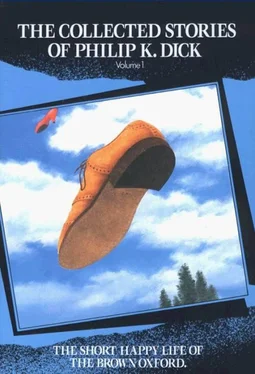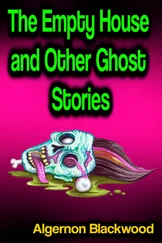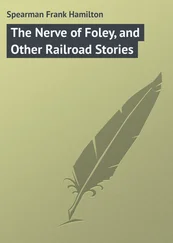The Short Happy Life of the Brown Oxford
and Other Classic Stories
by Philip K. Dick
In Memory of Philip K. Dick (1928-1982)
Preface by Philip K. Dick
I will define science fiction, first, by saying what sf is not. It cannot be defined as “a story (or novel or play) set in the future,” since there exists such a thing as space adventure, which is set in the future but is not sf: it is just that: adventures, fights and wars in the future in space involving super-advanced technology. Why, then, is it not science fiction? It would seem to be, and Doris Lessing (e.g.) supposes that it is. However, space adventure lacks the distinct new idea that is the essential ingredient. Also, there can be science fiction set in the present: the alternate world story or novel. So if we separate sf from the future and also from ultra-advanced technology, what then do we have that can be called sf?
We have a fictitious world; that is the first step: it is a society that does not in fact exist, but is predicated on our known society; that is, our known society acts as a jumping-off point for it; the society advances out of our own in some way, perhaps orthogonally, as with the alternate world story or novel. It is our world dislocated by some kind of mental effort on the part of the author, our world transformed into that which it is not or not yet. This world must differ from the given in at least one way, and this one way must be sufficient to give rise to events that could not occur in our society—or in any known society present or past. There must be a coherent idea involved in this dislocation; that is, the dislocation must be a conceptual one, not merely a trivial or bizarre one— this is the essence of science fiction, the conceptual dislocation within the society so that as a result a new society is generated in the author’s mind, transferred to paper, and from paper it occurs as a convulsive shock in the reader’s mind, the shock of dysrecognition. He knows that it is not his actual world that he is reading about.
Now, to separate science fiction from fantasy. This is impossible to do, and a moment’s thought will show why. Take psionics; take mutants such as we find in Ted Sturgeon’s wonderful MORE THAN HUMAN. If the reader believes that such mutants could exist, then he will view Sturgeon’s novel as science fiction. If, however, he believes that such mutants are, like wizards and dragons, not possible, nor will ever be possible, then he is reading a fantasy novel. Fantasy involves that which general opinion regards as impossible; science fiction involves that which general opinion regards as possible under the right circumstances. This is in essence a judgment-call, since what is possible and what is not possible is not objectively known but is, rather, a subjective belief on the part of the author and of the reader.
Now to define good science fiction. The conceptual dislocation—the new idea, in other words—must be truly new (or a new variation on an old one) and it must be intellectually stimulating to the reader; it must invade his mind and wake it up to the possibility of something he had not up to then thought of. Thus “good science fiction” is a value term, not an objective thing, and yet, I think, there really is such a thing, objectively, as good science fiction.
I think Dr. Willis McNelly at the California State University at Fullerton put it best when he said that the true protagonist of an sf story or novel is an idea and not a person. If it is good sf the idea is new, it is stimulating, and, probably most important of all, it sets off a chain-reaction of ramification-ideas in the mind of the reader; it so-to-speak unlocks the reader’s mind so that that mind, like the author’s, begins to create. Thus sf is creative and it inspires creativity, which mainstream fiction by-and-large does not do. We who read sf (I am speaking as a reader now, not a writer) read it because we love to experience this chain-reaction of ideas being set off in our minds by something we read, something with a new idea in it; hence the very best science fiction ultimately winds up being a collaboration between author and reader, in which both create—and enjoy doing it: joy is the essential and final ingredient of science fiction, the joy of discovery of newness.
(in a letter) May 14, 1981
Foreword by Steven Owen Godersky
There is a current coin-of-phrase that touts Philip K. Dick as the greatest science fiction mind on any planet. Well, that and a trajectory to Lagrange-5 are hyperbolic. The returns simply are not all in. The best is a tale that has yet to be written.
There are some things, though, that might make us feel a little more secure about Phil Dick’s contribution to this planet, not that his reputation needs any particular help today. The scope, the integrity and the intellectual magnificence of Phil’s work are internationally revered. He is regarded by many as the most “serious” of the modern science fiction authors, and the interest in his works has continued to mount since his untimely death in 1982. His reputation has been further enhanced by a growing body of scholarly criticism. If we take a measured look at his accomplishments there are three powerful themes that permeate almost every novel and story.
The first and most prominent theme today, can be seen in Phil’s watershed work on the question of what divides humanity from all the intricacies of its creations. This is part of the central preoccupation of all consequential writers. But Phil rephrased the question What does it mean to be human? to What is it like not to be human? He posed the problem intellectually, after his fashion, but then he made us feel his answers. In the best and really highest tradition of Mary Shelley he struck on empathy as the difference; in his own word, caritas. I do not have to be a futurist to predict that both his search and his discovery will become ever more important to us as we rush along the strange road that science calls progress.
Phil’s second theme is one of perspective; what I have come to think of as the care and feeding of scale-model gods. Though the arena of his ideas was so very large, what he trusted was, he once wrote, “very small.” In a literary era of superstars and superheroes Phil reminds us that our aspirations and abilities are not so different from, and not less important than, those of the great and powerful.
Think of Tung Chien in Faith of Our Fathers, and Ragel Gumm in Time Out of Joint. Their prosaic drudgery proves central to the fate of their worlds. Recall Herb Ellis in Prominent Author, an ordinary guy rewrites the Old Testament for inch-tall goatherds. Reflect on the significance of Herb Sousa’s gumballs in Holy Quarrel; on the moral influence of wub-fur, in NotBy Its Cover, and the battle with the sentient pinball machine in Return Match. Small is written large. Large is written small. Shop clerks and storekeepers are just as likely as warlords and messiahs to be at Dick’s ontological foci. Old Mrs. Berthelsen, in Captive Market, possesses the ultimate secret of time and space, and uses it to sell vegetables out of a wagon.
When reading Dick you don’t much see mile-long spaceships flaming into the sun. What you do see is one broken-down robot in a ditch. Or, more frightening, one butterfly trapped in a time warp. In Phil Dick’s stories, we see that everything, human or otherwise, is connected, everyone is important; what causes pain to one causes pain to all. As John Brunner points out, it certainly caused pain to Phil himself.
Читать дальше












